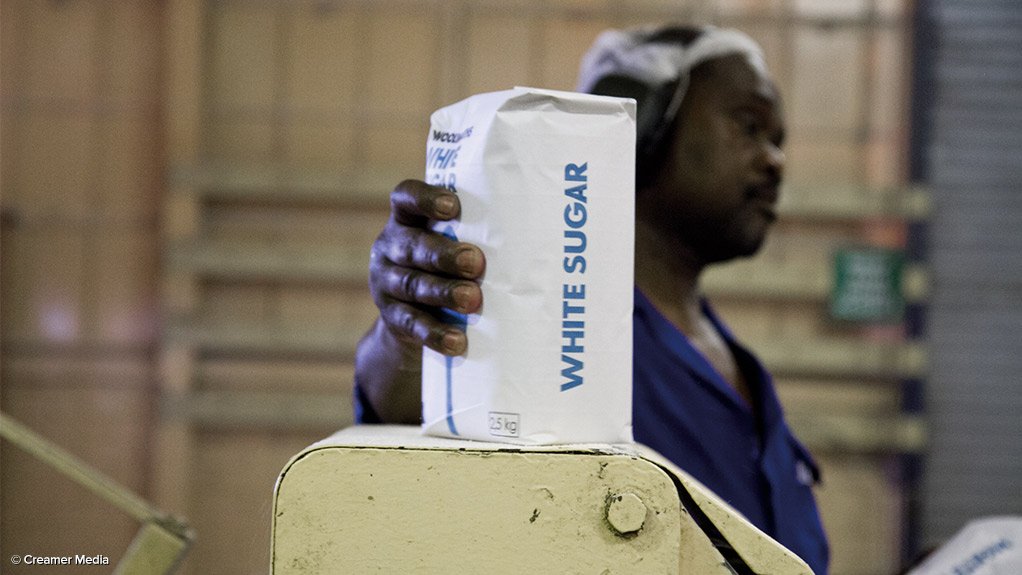Industry asks government to intervene in crisis



GRAEME STAINBANK The South African Canegrowers’ Association believes that government should acknowledge the damage that a sugar tax has had on the economy and the sugar industry
THE BRIGHT SIDE About 350 000 jobs will be secured including the future and livelihood of small-scale growers and land-reform farmers
Photo by Creamer Media
The sugar industry has called on government to act immediately to prevent the industry’s collapse, as the industry has lost R1.3-billion in only one season since the implementation of the sugar tax in April last year.
South African Canegrowers’ Association chairperson Graeme Stainbank says government should acknow- ledge that the sugar tax has damaged the economy, parti- cularly the sugar industry, and place a moratorium on it until a proper socioeconomic-impact assessment has been done.
Government motivated for the implementation of the sugar tax on the grounds that it was in the interest of public health. However, Stainbank notes that it is irresponsible of government to continue with or increase the sugar tax – putting thousands of jobs at risk – without any evidence that it is improving public health.
“One would need to do an analysis of obesity before and after the implementation of the sugar tax, and control for other variables. To the association’s knowledge, no such study has been done that provides concrete evidence of that.”
Stainbank says government should acknowledge that obesity is a multifaceted problem, which is exacerbated by a number of factors that include unhealthy lifestyles and a growing dependence on cheap junk food.
“Sugar is not a problem in isolation, it is one factor in an increasingly obesogenic environment.”
He suggests that government renegotiate the dollar-based reference price to the level of $856/t, for which the sugar industry initially applied. This would mean that cane growers would be able to fully recover their full cost of production and no longer produce sugar at a loss. It will also cushion the industry against the dumping of cheap imports from countries that are heavily subsidised.
A positive outcome will secure 350 000 jobs – including the future and livelihood of small-scale growers and land-reform farmers.
Stainbank says government and the sugar industry could reach common ground on sugar tax if there is political will. “We all have a common interest in growing the economy and preventing job losses.”
Meanwhile, the sugar industry and the Department of Trade and Industry (DTI) are at an exploratory stage of developing diversification strategies and finding alternative markets for sugar – such as biofuels, ethanol production, cane-based packaging and electricity generation – to decrease possible job losses, he mentions.
Acknowledging that the sugar industry may be behind in finding such markets, the association believes that such strategies can potentially restore the wellbeing of the sector, which will make it more competitive and prevent imminent job losses.
“The sugar industry hopes to discuss these further with the DTI when we meet with Minister Rob Davies. Only then will it be possible to put timeframes to the initiatives,” he says.
Stainbank adds that government has an obligation to assist the industry, similar to other governments globally. The protection and subsidisation afforded to the sugar industry in other parts of the world is one of the reasons why the South African industry struggles to compete globally, he notes.
“The crisis that the industry is experiencing is causing severe hardship, especially for small-scale growers, land- reform farmers and farmworkers. Solving this crisis will require a concerted effort from government and all stakeholders in the sugar industry, including cane growers, millers and the downstream sectors such as the non- alcoholic beverages industry,” Stainbank concludes.
Comments
Press Office
Announcements
What's On
Subscribe to improve your user experience...
Option 1 (equivalent of R125 a month):
Receive a weekly copy of Creamer Media's Engineering News & Mining Weekly magazine
(print copy for those in South Africa and e-magazine for those outside of South Africa)
Receive daily email newsletters
Access to full search results
Access archive of magazine back copies
Access to Projects in Progress
Access to ONE Research Report of your choice in PDF format
Option 2 (equivalent of R375 a month):
All benefits from Option 1
PLUS
Access to Creamer Media's Research Channel Africa for ALL Research Reports, in PDF format, on various industrial and mining sectors
including Electricity; Water; Energy Transition; Hydrogen; Roads, Rail and Ports; Coal; Gold; Platinum; Battery Metals; etc.
Already a subscriber?
Forgotten your password?
Receive weekly copy of Creamer Media's Engineering News & Mining Weekly magazine (print copy for those in South Africa and e-magazine for those outside of South Africa)
➕
Recieve daily email newsletters
➕
Access to full search results
➕
Access archive of magazine back copies
➕
Access to Projects in Progress
➕
Access to ONE Research Report of your choice in PDF format
RESEARCH CHANNEL AFRICA
R4500 (equivalent of R375 a month)
SUBSCRIBEAll benefits from Option 1
➕
Access to Creamer Media's Research Channel Africa for ALL Research Reports on various industrial and mining sectors, in PDF format, including on:
Electricity
➕
Water
➕
Energy Transition
➕
Hydrogen
➕
Roads, Rail and Ports
➕
Coal
➕
Gold
➕
Platinum
➕
Battery Metals
➕
etc.
Receive all benefits from Option 1 or Option 2 delivered to numerous people at your company
➕
Multiple User names and Passwords for simultaneous log-ins
➕
Intranet integration access to all in your organisation



















